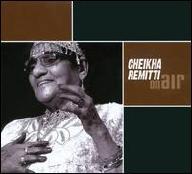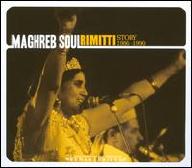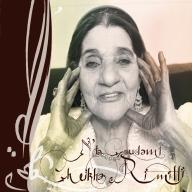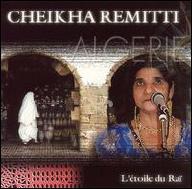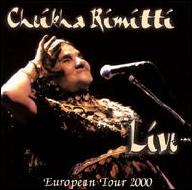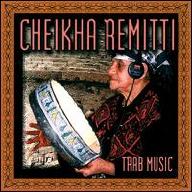When Algeria's first independent government ascended to power in 1962, Rimitti's songs were denounced as "folklore perverted by colonialism," and she was banned from appearing on television and radio. The censorship forced her to relocate to France, where she continued writing and recording to the delight of the fast-growing Algerian immigrant culture. During a brief Algerian tour in 1971, Rimitti was critically injured in an automobile crash that killed three of her backing musicians. The experience resulted in a 1975 pilgrimage to Mecca, after which she abandoned cigarettes and alcohol but continued her musical career. By the 1980s rai was the music of choice for a new generation of disenfranchised Algerians, and Rimitti was hailed as "La Mamie du Rai" -- that is, the mother of modern Algerian pop. As artists including Cheb Khaled and Rachid Taha covered her classic compositions, Rimitti's international profile grew exponentially, and she toured as far as Japan and Canada, in 1994 teaming with producer Robert Fripp for the LP Sidi Mansour, widely cited as a watershed in rai's creative evolution. In the summer of 2001, she made her U.S. debut at New York City's Central Park Summerstage, and in 2005 made her first trip back to Algeria in more than a quarter century to record the acclaimed N'ta Goudami. Just two days after performing a sold-out Paris date, Rimitti died of a sudden heart attack on May 15, 2006; she'd celebrated her 83rd birthday a week earlier. ~ Jason Ankeny, Rovi
|
1
|
|
Nouar |
|
2
|
|
N'ta goudami |
|
3
|
|
Nakhla |


